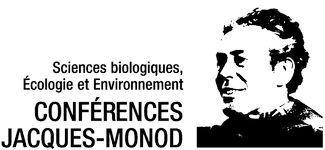Invited speakers list
Session 1. Lessons from non-metazoan relatives
- Thibaut Brunet (UC Berkeley, Berkeley, USA)
Reconstructing the cellular phenotype of the single-celled ancestor of animals
- Susana Coelho (Max Planck Institute, Tübingen, Germany)
Origin and evolution of the sexes: lessons from non-metazoans cousins
- László Nagy (Biological Research Centre, Szeged, Hungary)
Taxonomic vs genomic fungi: large turnover of protistan genetic heritage in the fungal kingdom.
- Jill Harrison (University of Bristol, Bristol, United Kingdom)
The origin and rise of vascular plants
Session 2. Lessons from the fossil record
- Abder El Albani (University of Poitiers, France)
Life history: A new perspective in the understanding of the emergence of multicellularity
- Jean Vannier (University of Lyon 1, France)
Understanding animal radiation in the Cambrian: Why fossils are so important
- Phil Donoghue (University of Bristol, United Kingdom)
Developmental biology of early animals and their near relatives
Session 3. Animal evolutionary relationships and tree topology
- Hervé Philippe (CBTM, Moulis, France)
Phylogénie des eucaryotes
- Gert Wörheide (LMU, Munich, Germany)
Towards resolving controversial nodes in the animal tree of life
- Casey Dunn (Yale University, New Haven, USA)
Phylogenetic comparative analyses of functional genomics
- Camille Berthelot (IBENS, Ecole Normale Supérieure, Paris, France)
Combining synteny and sequence-based approaches to investigate genome evolution
Session 4. Lessons from Placozoans
- Harald Gruber-Vodicka (MPI, Bremen, Germany)
Symbiosis as a driver of metazoan evolution
- Tatiana Mayorova (NIH, Bethesda, USA)
Placozoan cell types - counterparts of cell types in other animal phyla?
Session 5. Evolution of cells and cell types
- Arnau Sebé Pedros (CRG, Barcelona, Spain)
Single-cell analysis of early metazoan cell type programs
- Juliette Azimzadeh (Institut Jacques Monod, Paris, France)
Evolutionary perspective on centriole polarisation in multiciliated cells
- Detlev Arendt (EMBL, Heidelberg, Germany)
The assembly of molecular machinery in metazoan cell type evolution
- Kristin Tessmar-Raible (University of Vienna, Austria)
Telling time by sun and moon: What marine worms and midges can tell about the evolution of the mechanisms
Session 6. Lessons from Sponges and Ctenophores
- Emmanuelle Renard (IMBE, Marseille, France)
Insights into the first glass sponge genome
- Sally Leys (Univeristy of Alberta, Edmonton, Canada)
Sponge lives matter: physiology of sponges in the genomic era
- Bernie Degnan (Universty of Queensland, Brisbane, Australia)
Origin of animal multicellularity and complex differentiation landscapes
- Ana Riesgo (Natural History Museum, London, United Kingdom)
Bacteria and sex: The role of the microbiome in the sexual determination and strategy shifts of sponges
- Joe Ryan (Whitney Laboratory, University of Florida, USA)
Evidence for muscle cell types in the last common animal ancestor
- André Le Bivic (IBDM, Marseille, France)
Evolution of adherens junctions in epithelial cells of metazoans
Session 7. Lessons from Cnidarians
- Richard Copley (LBDV, Villefranche-sur-mer, France)
Genes of the cnidarian-bilaterian ancestor
- Celina Juliano (University of Davis, California, USA)
Mechanisms of Development and Regeneration in Hydra
- Matt Gibson (Stowers Institute, Kansas, USA)
Tracing the origins of segmentation and segment polarization in animals
- Ulrich Technau (University of Vienna, Austria)
Assessing Genomic and cellular features of complexity in the cnidarian Nematostella vectensis
|


